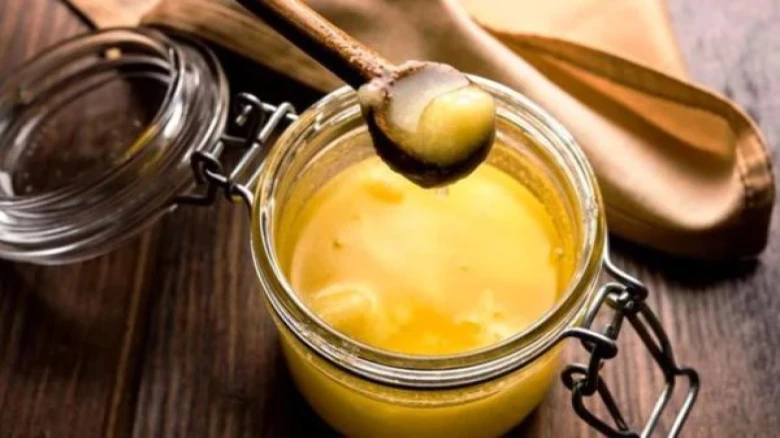Regional

It is widely assumed that Ghee and oil are harmful to our health and that their consumption can lead to obesity and heart disease.
Digital Desk: Who doesn't love Ghee? It will be very unethical to ask Indians about thier love for Ghee. Ghee is a clarified butter popular in Indian and Middle Eastern cuisines. It is traditionally made by gently heating cow's milk butter until the water content evaporates and the milk solids can be skimmed and strained away, leaving only the liquid fat.
"Clarified butter is very similar to ghee," says Chandradhar Dwivedi, a distinguished professor emeritus of pharmacology at South Dakota State University. "However, clarified butter is sometimes made using high heat, whereas ghee is simmered at 100 degrees or less."
While Ghee takes longer to make than other types of clarified butter, he claims that it retains more vitamins and nutrients due to its low-heat preparation. He explains that Ghee contains vitamin E, vitamin A, antioxidants, and other organic compounds, many of which would be broken down or destroyed if boiled at higher temperatures.
Ghee is also used in Ayurveda, a 6,000-year-old complementary medicine still widely practised in India and other parts of the world. "Ghee is used as a vehicle for herbal medication," explains Dwivedi. "The thought process was that ghee is sacred, and when combined with medicine, you get both a medical and a spiritual benefit."
What are the health benefits of Ghee?

In other aspects, Ghee is a type of fat. And, until recently, dietary fats had a bad reputation. Because fat is a calorie-dense macronutrient, eating fatty foods, in general, was thought to promote weight gain and obesity. Ghee and other types of butter contain a lot of saturated fat, which has long been linked to heart disease.
But attitudes toward fat have shifted. Many types of dietary fat, such as olive oil and avocado, are now considered hunger-satisfying additions to a healthy diet rather than promoting obesity. While experts disagree on saturated fat, some believe it is no longer a clear health risk.
To understand the heart-health risks of Ghee, Dwivedi conducted several studies on rats. (While animal research doesn't necessarily translate to people, Dwivedi's work is some of the only published research looking specifically at Ghee.)
Among healthy animals, he found that packing their diets with up to 10% ghee did not lead to elevated levels of harmful cholesterol or other markers of heart disease. On the other hand, when examining a species of inbred rat with a genetic predisposition for the various disease, eating a ghee-heavy diet increased their blood levels of unhealthy cholesterol and triglycerides.
There isn't much hard evidence that Ghee is healthier than other types of butter. "Claims of ghee's special health-giving properties are unsubstantiated," says Dr Rosalind Coleman, a nutrition professor at North Carolina Gillings School of Global Public Health.
According to Coleman, Ghee, which does not contain milk solids, may be easier to digest for lactose-intolerant adults. Ghee also has a higher smoke point than regular butter, which she claims makes it healthier for cooking. The same cannot be said for clarified butter. "Because the fats in butter and ghee are the same, moderate use of both is recommended," she adds.
It indicates that Ghee may be a good option if you're healthy and looking to add more fat to your diet. However, there isn't enough evidence to suggest that Ghee is a "superfood" that should be used instead of other cooking fats in your diet.
Also Read: Covid-19 Updates: One case of XE variant found in India: INSACOG
Leave A Comment